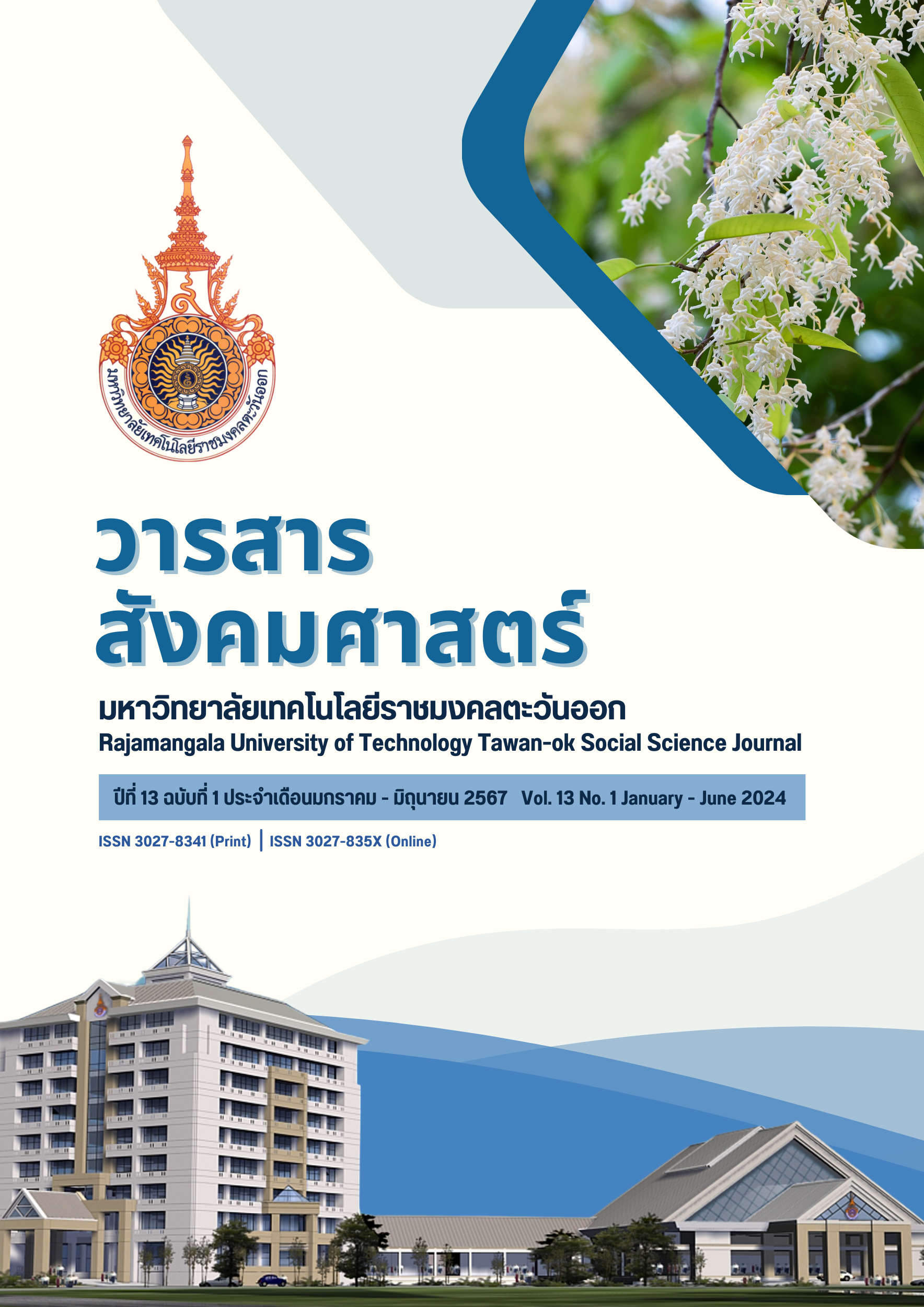Strategy for Increasing Sales Volume of Accommodation Business in Sri-Chang Island after COVID-19 Crisis.
Main Article Content
Abstract
The objectives of this research were to 1) study the decision behavior of accommodation’s choosing in Sri-Chang Island after COVID-19 crisis. 2) study the decision factors of accommodation’s choosing in Sri-Chang Island after COVID-19 crisis. 3) study the management guidelines of the accommodation business in Sri-Chang Island after COVID-19 crisis and 4) determine the strategy for increasing sales volume of accommodation business in Sri-Chang Island after COVID-19 crisis. This research methodology were integrated between qualitative and quantitative research. The data were collected by Interviewing and questionnaires. The research procedure consisted of three steps: Step 1; study information about the decision behavior and decision factors of accommodation’s choosing (quantitative research). Step 2; study management guidelines for accommodation businesses in Sri-Chang Island after COVID-19 crisis (qualitative research). And step 3; determine the strategy for increasing sales volume of accommodation business in Sri-Chang Island after COVID-19 crisis. The steps were as follows. 1) Relationship examination by KMO statistics and Bartlett's Test of Sphericity. 2) Exploratory factor analysis (EFA) 3) Relationship examination among the variables by structural equation modeling (SEM) and 4) Examination of draft strategies by focus group discussion. The results of this research were showed the strategy for increasing sales volume of accommodation business in Sri-Chang Island after COVID-19 crisis in term of “START Model” and the meaning of “S” = Sustainable strengths were making the accommodation's sustainable strengths. “T” = Target customer focus was developing channels to reach target customers. “A” = Administration for Income & Cost were revenue management and reasonable costs. “R” = Relationships between community & business partners were building good relationships with community networks and business partners and “T” = Tangible service needs were creating concrete services that respond to customer needs. This strategy can be applied as management guidelines for accommodation businesses in Sri-Chang Island after COVID-19 crisis.
Article Details

This work is licensed under a Creative Commons Attribution-NonCommercial-NoDerivatives 4.0 International License.
References
Chubchuwong, M. (2019). Hotel Marketing. Bangkok: Chulalongkorn University Printing House. (in Thai)
Jaroensuk, A. (2022). Service Innovation Management Model for Hotel Business in Thailand. Rajamangala University of Technology Tawan-ok Social Science Journal, 2(11), 98-113. (in Thai)
Kaewpromman, A., Sritong, C., & Pomsuwan, S. (2019). Guidelines for small hotel competitive advantages of southern Andaman coast Thailand. BU ACADEMIC REVIEW, 18(2), 99-113. (in Thai)
Khemthong, S. (2019). Entrepreneurship in the service business. Nonthaburi: Office of the University Press Sukhothai Thammathirat Open University. (in Thai)
Ko Sichang Subdistrict Municipality. (2021). Koh Sichang information. Retrieved 30 Nov 2021, from https://www.kohsichang.go.th/. (in Thai)
Kotler, P., Kartajaya, H., & Setiawan, I. (2016). Marketing 4.0: Moving from Traditional to Digital. New Jersey: John Wiley & Sons, Inc.
Laohasiri, S. (2016). Plan to beat your competitors with 5 competitive advantage strategies that must be present in digital marketing. Retrieved 7 Dec 2021, from https://positioningmag.com/1102353. (in Thai)
Lunkam, P. (2021). Tourism & Hotel industry in the post-COVID world. Retrieved 27 Nov 2021, from https://www.krungsri.com/getmedia/ab21638a-4089-4bb4-bb8a-62ba89d2c7da/RI_Future. (in Thai)
Office of the National Economics and Social Development Council. (2017). The Twelfth National Economic and Social Development Plan (2017-2021). Retrieved 27 Nov 2021, from https://www.nesdc.go.th/ewt_dl_link.php?nid=6422. (in Thai)
One belief. (2017). Get to know some interesting modern marketing strategies you might not have thought of. Retrieved 1 Dec 2021, from https://www.1belief.com/article/marketing-strategy/.(in Thai)
Porter, M.E. (1985). Competitive Advantage: Creating and Sustaining Superior Performance. New York: Free Press.
Pouyox, A. (2021). Adaptation strategies to COVID-19 crisis of hospitality business operated with the sufficiency economy philosophy during 2020-2021 : case study of the business trained by Porlaewdee program (Master Thesis). Chulalongkorn University, Bangkok. (in Thai)
Steadmon, C. E., & Kasavana, M. L. (1988). Managing front office operations: The Education Institute of the American Hotel & Motel Association. Michigan: East Lansing.
Strategy and information for the development of Chonburi Province. (2017). Chonburi Provincial Plan 2018-2021. Retrieved 27 Nov 2021, from http://www.chonburi.go.th/Portals/0/CEO/result_plan61-64_chon.pdf. (in Thai)
Temrat, S. (2018). Service quality effecting returning guest staying at 5 stars hotel in Bangkok (Master Thesis). Silpakorn University, Bangkok. (in Thai)
Tripopsakul, S. (2021). Marketing principles for entrepreneurship. Bangkok: Chulalongkorn University Printing House. (in Thai)
Wongrattana, C. (2017). Techniques for creating research tools: Guidelines for professional use. Bangkok:Amorn Karphimph. (in Thai)


